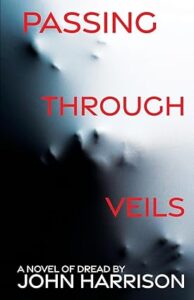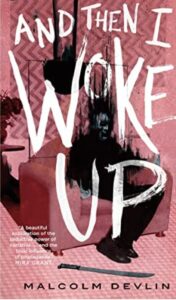Passing Through Veils by John Harrison
Wordfire Press, 2023
ISBN-13 : 978-1680574234
Available: Hardcover, paperback, Kindle edition
Buy: Bookshop.org | Amazon.com
Sometimes, the best stories have the worst narrators, at least in reliability. Spending time with the character who we travel through the book with, wondering how much is accurate versus that person’s perception, makes for an intriguing read-– if written well. Passing Through Veils has been compared to Gone Girl and The Haunting of Hill House, but John Harrison has penned a novel that forges its own path in Passing Through Veils, constructed with skill and insight, into a mentally unstable mind. Harrison has plenty of experience in entertainment, from writing episodes of Creepshow, to directing Tales From the Darkside, and the horror miniseries Residue, on Netflix.
The novel opens with a vicious murder, witnessed only by a young boy, and is seemingly unconnected to the rest of the novel.
The reader is then introduced to Kathryn, once a promising star in the legal field until a complete breakdown sends her to a psychiatric ward for six months. When released, she secures a job with a friend’s firm, and purchases a townhouse with her mother. She hears music and other noises through the walls, but just as she is about to relapse, she punches through the wall – and discovers a secret room with a vanity, o ther items, and the source of the music.
As Kathryn investigates who used to live there, possibly the murdered woman from the scene at the beginning of the book, reality begins to unravel in front of her. Visions of a strange woman plague her, and she is having bouts of dissociation when in the house or with items left behind. She meets an intriguing man with a connection to the house and his odd brother, both who have integral roles in the story. How the story is resolved is worth the read. Recommended to fans of ghost stories and unreliable narrators-– or simply well told tales.
Reviewed by David Simms







Follow Us!